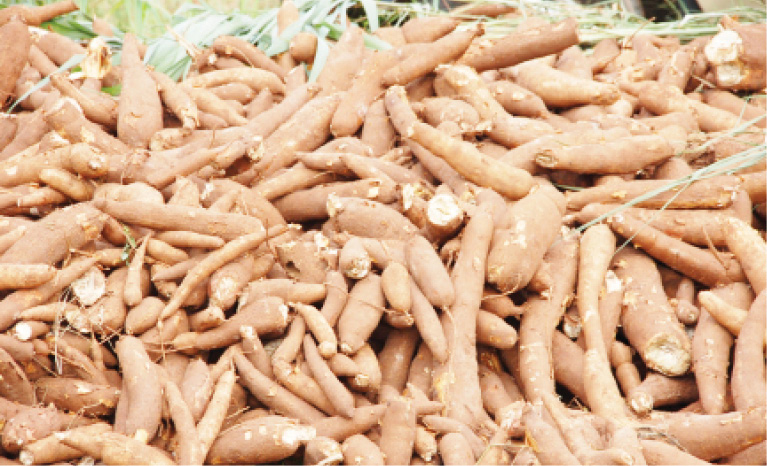Civil society groups reject application of genetically modified cassava
The Health of Mother Earth Foundation (HOMEF), the GMO-Free Nigeria Alliance and 43 other Civil Society Organisations have rejected move by the National Root Crops Research Institute, Umudike to embark on a field trial of cassava to be genetically modified to express elevated levels of Iron and Zinc in the storage roots and high resistance […]

The Health of Mother Earth Foundation (HOMEF), the GMO-Free Nigeria Alliance and 43 other Civil Society Organisations have rejected move by the National Root Crops Research Institute, Umudike to embark on a field trial of cassava to be genetically modified to express elevated levels of Iron and Zinc in the storage roots and high resistance to Cassava Brown Streak Disease (CBSD).
The CSOs in a statement said they had submitted a letter of objection to National Biosafety Management Agency (NBMA) on 21 June 2019 pointing out that the stability of the traits involved in the modification process remained uncertain.
“The potential for gene flow to wild varieties of the crop and the impact on non-target organisms poses serious threat to biodiversity,” the statement signed by the Director of HOMEF, Nnimmo Bassey said.
“Genetic engineering of mineral content in staple crops raise serious concern and has the inherent disadvantage of over-expression of multiple genes which holds the possibility of causing significant toxicity to biological systems.”
They said: “Commercial release of this GM cassava has not been authorised before in any jurisdiction in the world,” stressing that “the lack of relevant scientific information and knowledge regarding the extent of potential adverse effects, triggers the Precautionary Principle of the Cartagena Protocol on Biosafety to which Nigeria is signatory and which advises caution when scientific evidence about environmental or human health hazard is uncertain.”
The CSOs also noted that the applicant did not provide information relating to the several genes orchestrated processes from mineral uptake by the roots to transport throughout the plant to accumulation in edible tissues (cassava storage roots).
“The fact that insects and flood pollinate cassava presents serious concern for human health and biodiversity,” the statement further read.
Many countries such as Zimbabwe recently conducted field trials of genetically modified cassava but such researches in these countries have been discontinued and abandoned at laboratory stage for being futile.
The groups reiterated that “genetic modification of our food crops is not the solution to food and agriculture challenges,” arguing that nourishment in terms of mineral contents can best be increased by encouraging diet diversification through locally available foods.
